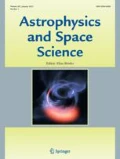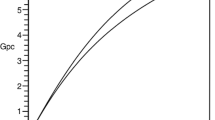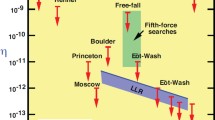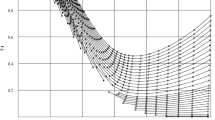Abstract
It is shown that global four-momentum conservation provides all the necessary structure toderive a metric gravity theory which conforms to the requirements of the Strong Equivalence Principle (Will, 1981), and which satisfies all empirical tests up to, and including, those derived from the binary pulsar measurements. Significant consequences arising from this theory are: concepts of curved spacetimes become strictly superfluous to the function of describing gravitational physics; gravitational processes become direct particle/particle interactions; these interactions are arbitrated by wave processes of a kind familiar in electromagnetism; gravitational waves carry energy-momentum in the direction of their propogation vector; the essential singularities at gravitational origins, which are features of both Newtonian gravitation and General Relativity, do not exist.
Similar content being viewed by others
References
Thorne, K.S.,Gravitational Wave Research: Current Status and Future Prospects, Rev. Mod. Phys. Vol52, pp. 285–297 (1980).
Will, C.M.,Theory and Experiment in Gravitational Physics, CUP (1981).
Author information
Authors and Affiliations
Rights and permissions
About this article
Cite this article
Roscoe, D.F. Gravitation, global four-momentum conservation and the strong equivalence principle. Astrophys Space Sci 227, 119–132 (1995). https://doi.org/10.1007/BF00678072
Issue Date:
DOI: https://doi.org/10.1007/BF00678072




